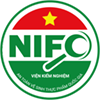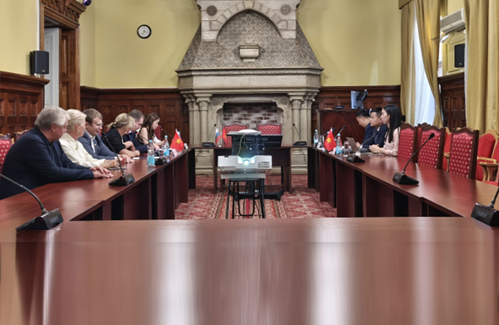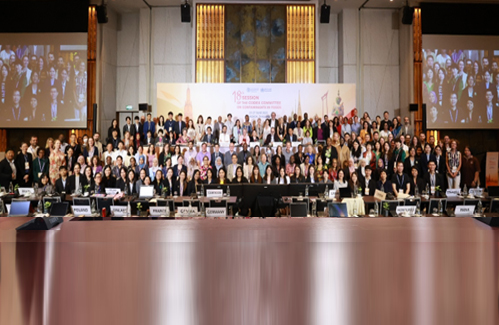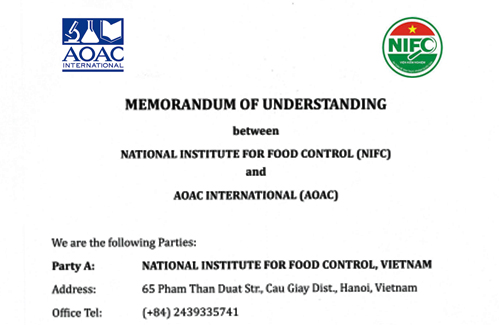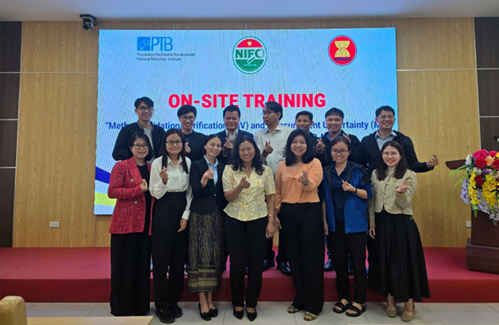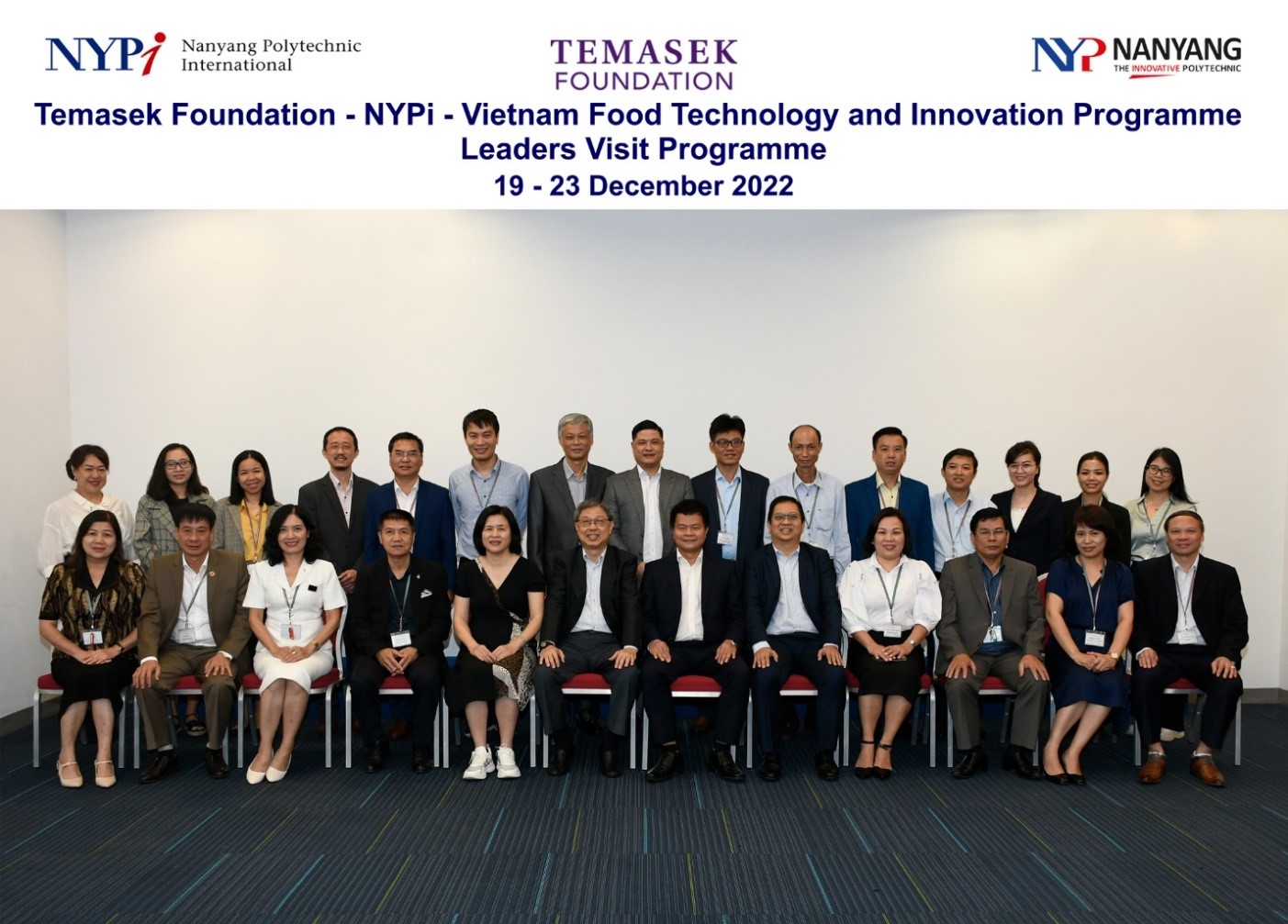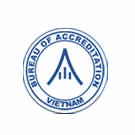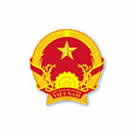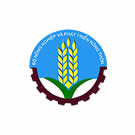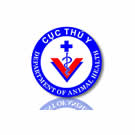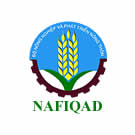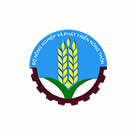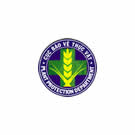- Folder International Cooperation
- Views 652
- Last Updated 22/09/2025
From September 10th to September 12th, 2025, a delegation from the National Institute for Food Control and several food safety management agencies and testing units from various localities in Vietnam visited and attended a roundtable on "Scientific and methodological support for health risk assessment". The event was held at the Federal Scientific Center for Medical and Preventive Health Risk Management Technologies (FBSI) in Perm, Russian Federation.
The 12-member Vietnamese delegation was led by Associate Professor, Dr. Tran Cao Son, Deputy Director of the National Institute for Food Control. The group included scientists and officials from the National Institute for Food Control and several provinces and cities, including Hanoi, Quang Ninh, Hai Phong, Bac Ninh, Lang Son, Nghe An, and Hue.
On September 10th, 2025, the delegation met with leaders and staff at the FBSI, which is part of the Federal Scientific Center for Medical and Preventive Health Risk Management Technologies on Federal Service for Surveillance On Customers Rights Protection and Human Wellbeing. During the meeting, Dr. Konstantin P. Luzhetsky, Deputy Director of the FBSI, welcomed the delegation and provided an overview of the center, including its administrative structure and infrastructure. He also discussed the detailed agenda for the roundtable and future cooperation opportunities between the two countries in risk assessment.
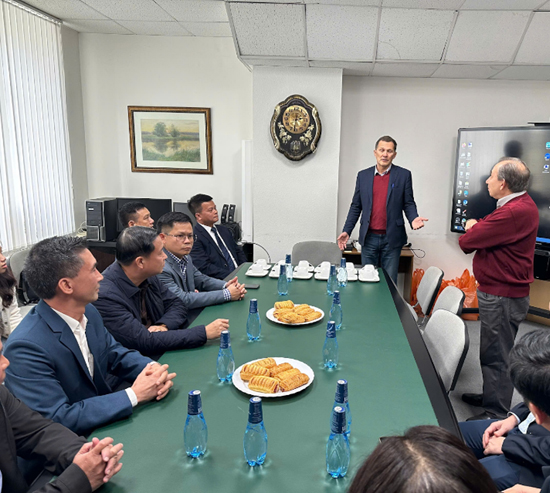
Image of the delegation from Vietnam visiting and working with the FBSI Center
On September 11th and 12th, 2025, the roundtable took place with in-depth topics presented by experts and scientists from both sides. The scientific presentations provided multidimensional perspectives and groundbreaking research on health risk assessment. Speakers focused on several key aspects, including health risk analysis in national socio-economic development strategies, risk assessment related to chemical and biological agents in food, and risk-based monitoring models. Advanced methodologies were also shared, such as the use of biomarkers and genetic markers for risk identification and the application of artificial intelligence models, including neural networks and evolutionary models, to predict health risks. These methods aim to enhance the effectiveness and accuracy of this field.
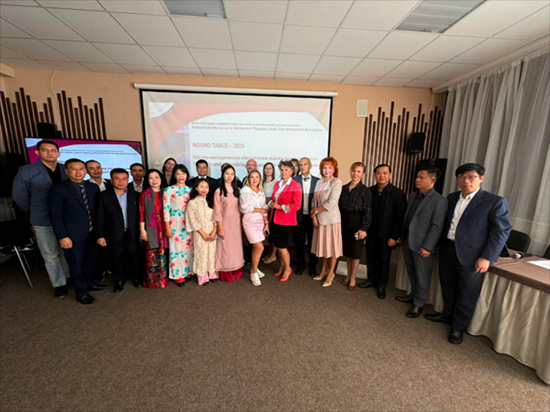
Image of delegates taking souvenir photos at the roundtable
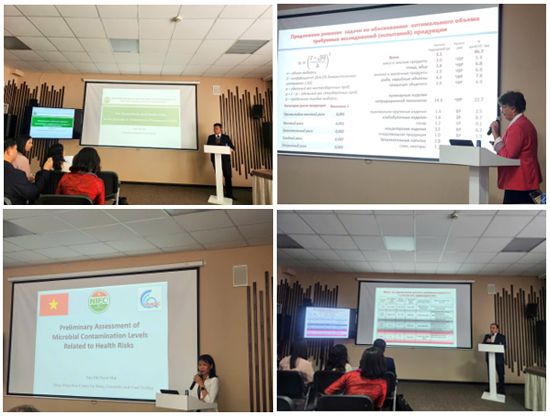
Image of delegates presenting reports at the roundtable
Following the presentations, delegates from both sides engaged in lively discussions on key topics. They analyzed and clarified issues related to methodologies in health risk assessment, practical research findings, and challenges in implementation in each country. This exchange helped both sides gain a deeper understanding of each other's research directions, approaches, and management experiences.
The Vietnamese delegation had a valuable opportunity to access updated scientific information and advanced risk assessment methods related to chemicals, food additives, and microorganisms. They were able to learn more about the approaches, tools, and data used by research units in the Russian Federation, which will help them better understand risk management models. The roundtable also served as a great opportunity to gain practical experience in food safety control and public health protection, which will help build a solid foundation for future scientific cooperation between the two sides.
Based on the discussions, the Vietnamese delegation and their Russian partners agreed to create a cooperation plan for the next phase. The cooperation will focus on strengthening academic exchanges, sharing scientific data, jointly organizing international workshops, and implementing collaborative research projects in food safety and health risk assessment. This is considered an important foundation for developing a long-term, strong, and effective cooperative relationship for both parties.
Written by Kieu Van Anh – Laboratory of Food Toxicology and Allergy.
